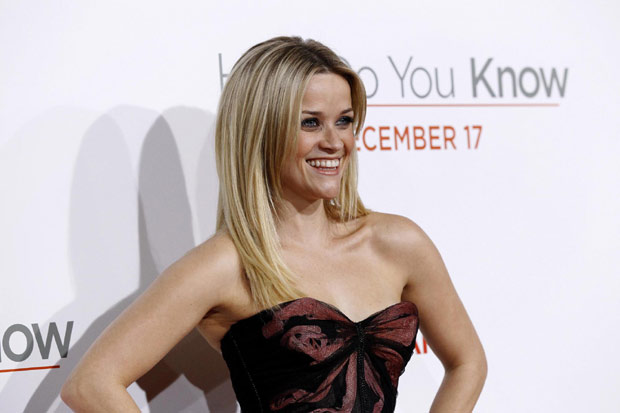Movies
Star power of little use in 'How Do You Know'
Updated: 2010-12-16 07:50
(Agencies)

LOS ANGELES - A question mark after the titular query is not the only thing missing from "How Do You Know," a low-impact romantic comedy-drama from James L. Brooks in which the central characters are strangely disconnected from one another as well as from the audience.
While not as bad as his last outing, Spanglish, six years ago, it nonetheless shares the same sense of separation from real life, of having been hatched in some L.A. bubble that's raised its drawbridge to the outside world.
The high-pedigree cast will attract a measure of holiday patronage, but ticket sales will fall well short of the old Brooks standard. The Sony film opened Wednesday.
Very attractive sorts who occupy the posher circles of Arlington, Va., just across the river from D.C., the main figures here babble on so incessantly about themselves -- often in psychiatric jargon that suggests either they or their creator have been spending far too much time in the company of shrinks -- that their chatter soon becomes a blur of noise only sporadically worth listening to. Self-absorbed uncertainty is the order of the day, but not in a terribly amusing way.
The promising opening spotlights Reese Witherspoon's Lisa as a star national women's league softball player. Rather than to see her get cut from the team right away, it might have been more engaging to spend the first act watching her in what she doesn't know to be her final season; what this confident, capable woman later fleetingly reveals about her lack of feeling for love and kids is intriguing but makes one wish to have seen her in her prime. But dropped she is, sending the 31-year-old beauty into a downward swirl of not knowing what to do for the rest of her life.
Simultaneously thrown for a loop is sincere, energetic young businessman George Madison (Paul Rudd), who, unaware of having done anything wrong, is stunned to be charged with securities fraud. He's urged by his dad and company boss, Charles (Jack Nicholson), not to overly worry, but his bad news only gets worse, on top of which he's dumped by his girlfriend.
It's Brooks' design, then, that two people who might be right for one another meet at their mutual lowest ebbs. But they don't seem like types well equipped to perform rescue missions from depression, and it's frankly hard to fathom the idea that the seemingly rational Lisa would tolerate a basket case like George; on a dinner date, she creatively suggests that they not talk as they eat, just so they can compose themselves, with the added dividend that the audience is spared more motor-mouthed, over-the-top confessionals for a moment or two.
Providing a radically different option for Lisa is Washington Nationals pitcher Matty (Owen Wilson), a good-times guy with a designer condo and a social life defined by the extensive collection of toothbrushes and pink garb he has available for his stream of overnight female guests. A sweet-natured horndog, Matty so plainly is what he is that it's impossible to begrudge him his habits. When he becomes vaguely serious about Lisa, who superficially represents a good, athletic match for him, even grasping the basic tenets of monogamy proves as difficult for him as learning a foreign language.
So, yes, the title is right, it is difficult to know who and what are best for you, to decide on a mate and what road to take. So what else is new? For George, it's a double crunch; not only does he have to decide that Lisa is worth winning, but how he plays the criminal matter goes to the crux of his relationship with his father.
The problem is that Brooks only reveals, or explores, a fraction of his characters, and only those aspects that can be illustrated by quasi-comic shtick provoked by extreme conditions. The writer-director's sitcom roots show vividly, both in the confessional-mode writing and the prosaic staging. Cinematographer Janusz Kaminski does a real chameleon act here, shooting in a bright, crisp manner closer to '70s TV than to anything he's ever done before for the big screen. Except for the limited location work, the enterprise bears a strong sense of the soundstage.
Suppressing her natural can-do personality, Witherspoon plays a more neurotic and conflicted character than usual for her, but one wishes the writing went far deeper to realistically explore Lisa's uncertainties and mixed emotions. All the same, if not for Witherspoon's radiant, spirited presence, "How Do You Know" would be a difficult sit indeed. The three leading men are all appealing but go easy routes here: Rudd mugs, Wilson preens and Nicholson, sounding quite raspy-voiced, pushes well-known buttons.
Given the familiarity and insularity of the material here, "How Do You Know" suggests that, if there's one filmmaker in Hollywood right now in need of a tour of how the other half lives, a la Joel McCrea in "Sullivan's Travels," it's James Brooks.
E-paper

Ear We Go
China and the world set to embrace the merciful, peaceful year of rabbit
Preview of the coming issue
Carrefour finds the going tough in China
Maid to Order
Specials

Mysteries written in blood
Historical records and Caucasian features of locals suggest link with Roman Empire.

Winning Charm
Coastal Yantai banks on little things that matter to grow

New rules to hit property market
The State Council launched a new round of measures to rein in property prices.
